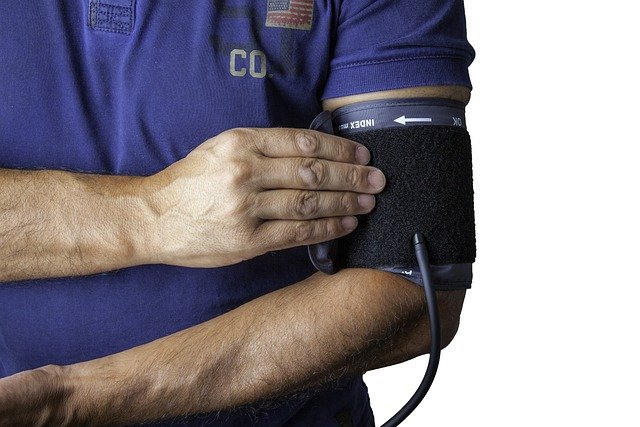Spotting the Signs Early: Why a Bipolar Test Can Change Your Life
Bipolar disorder is a complex mental health condition that affects millions of people worldwide. Recognizing the signs and symptoms early can be crucial for timely intervention and effective management. A bipolar test can play a pivotal role in identifying this condition, potentially changing the course of one's life. This article explores the importance of bipolar testing, its benefits, and what to expect during the process.

What is a bipolar disorder test?
A bipolar disorder test is a comprehensive assessment tool used by mental health professionals to evaluate an individual’s symptoms and determine if they meet the diagnostic criteria for bipolar disorder. This test typically involves a combination of clinical interviews, questionnaires, and sometimes psychological evaluations. It’s designed to capture the nuanced patterns of mood swings, energy levels, and behavioral changes characteristic of bipolar disorder.
Why is early detection of bipolar disorder crucial?
Early detection of bipolar disorder can significantly impact a person’s quality of life. Untreated bipolar disorder can lead to severe mood episodes, disrupted relationships, and impaired functioning in work or school. By identifying the condition early, individuals can access appropriate treatment, learn coping strategies, and prevent the escalation of symptoms. Early intervention often results in better long-term outcomes, including improved mood stability and overall well-being.
What are the signs and symptoms of bipolar disorder?
Recognizing the signs and symptoms of bipolar disorder is essential for determining when a bipolar test might be necessary. Key indicators include:
-
Manic episodes: Periods of elevated mood, increased energy, decreased need for sleep, and impulsive behavior.
-
Depressive episodes: Extended periods of low mood, loss of interest in activities, fatigue, and feelings of hopelessness.
-
Rapid cycling: Frequent shifts between manic and depressive states.
-
Mixed episodes: Simultaneous experience of both manic and depressive symptoms.
-
Changes in sleep patterns, appetite, and concentration.
-
Increased risk-taking behavior during manic phases.
If you or someone you know experiences these symptoms, seeking a professional evaluation may be beneficial.
How is a bipolar self-test different from a clinical assessment?
A bipolar self-test is a preliminary screening tool that individuals can use to assess their symptoms before seeking professional help. These tests are often available online and consist of a series of questions about mood, behavior, and experiences. While self-tests can be helpful in raising awareness, they are not diagnostic tools and should not replace a comprehensive clinical assessment.
Clinical assessments, on the other hand, are conducted by trained mental health professionals. They involve in-depth interviews, review of medical history, and sometimes additional psychological testing. These assessments provide a more accurate diagnosis and can differentiate bipolar disorder from other mental health conditions with similar symptoms.
What can you expect during a bipolar disorder test?
When undergoing a bipolar disorder test, you can expect a thorough evaluation process. The mental health professional will likely:
-
Conduct a detailed interview about your symptoms, medical history, and family history of mental health conditions.
-
Ask you to complete standardized questionnaires to assess your mood and behavior patterns.
-
Possibly request input from family members or close friends to gain additional perspectives on your symptoms.
-
Perform a physical exam or order lab tests to rule out other medical conditions that could mimic bipolar symptoms.
-
Evaluate your symptoms against the diagnostic criteria outlined in the DSM-5 (Diagnostic and Statistical Manual of Mental Disorders).
The entire process may take several sessions to ensure a comprehensive and accurate assessment.
How can a positive bipolar test result change your life?
Receiving a positive result from a bipolar test can be a life-changing moment. While it may initially feel overwhelming, a diagnosis can provide clarity and open doors to effective treatment options. Here’s how a positive test result can impact your life:
-
Access to appropriate treatment: A diagnosis allows healthcare providers to develop a tailored treatment plan, which may include mood stabilizers, psychotherapy, or a combination of both.
-
Improved self-understanding: Understanding your condition can help you make sense of past experiences and develop strategies for managing symptoms.
-
Better relationships: With proper treatment and support, individuals can maintain healthier relationships and communicate their needs more effectively.
-
Enhanced career and academic performance: Managing symptoms can lead to improved focus and stability in work or school settings.
-
Reduced risk of complications: Early intervention can prevent the progression of symptoms and reduce the risk of severe mood episodes, substance abuse, or other complications associated with untreated bipolar disorder.
-
Community support: A diagnosis can connect you with support groups and resources specifically tailored for individuals with bipolar disorder.
In conclusion, a bipolar test can be a crucial step towards understanding and managing your mental health. By spotting the signs early and seeking professional evaluation, you can embark on a path of effective treatment and improved quality of life. Remember, bipolar disorder is a manageable condition, and with the right support and interventions, individuals can lead fulfilling and productive lives.
This article is for informational purposes only and should not be considered medical advice. Please consult a qualified healthcare professional for personalized guidance and treatment.




